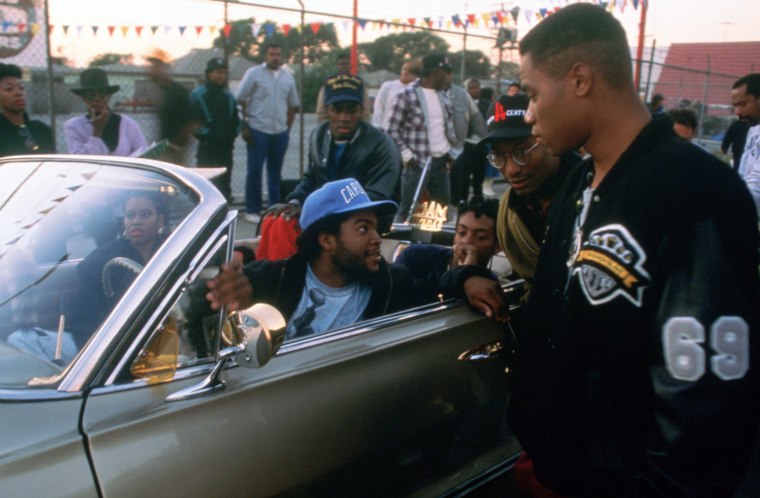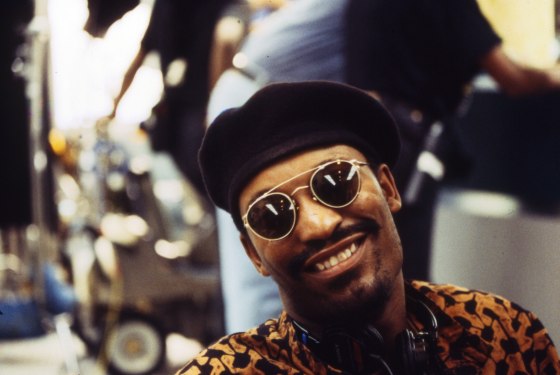Over the course of his 51 years of life and nearly 30 years as a Hollywood filmmaker, John Singleton created a remarkable legacy. The award-winning director, who died on April 29, forced generations of black people to reexamine how they viewed their own world and challenged non-black people to confront their biases and expand their perspectives on the black experience. This is exemplified by his most famous film “Boyz N the Hood,” which brought a humanity to black men in South Central Los Angeles at a critical time.
Coming on the heels of 1991 thriller “New Jack City,” “Boyz N the Hood” expanded the genre of so-called hood films and pushed back against Hollywood’s stereotypical images of black people. Singleton’s debut project (named for rapper Eazy-E’s 1987 song off the compilation album, “N.W.A. and the Posse”) dug deeper at a time when mainstream media had only just begun to acknowledge the fact that black men were dying at alarming rates.
Singleton’s debut project dug deeper at a time when mainstream media had only just begun to acknowledge the fact that black men were dying at alarming rates.
As the 1980s came to a close, gun violence in America’s urban areas began trickling into the white cultural consciousness. The 1988 New York Times article, “Gang Violence Shocks Los Angeles,” appeared as the chaos that had claimed 387 (black) lives the year before began encroaching on UCLA’s campus, threatening white people. A couple of months later, the film, “Colors,” starring Sean Penn and Robert Duvall, addressed the mayhem from the perspective of police officers.
SIGN UP FOR THE THINK WEEKLY NEWSLETTER HERE
Singleton’s film was different, however. It erased the specter of “otherness” by grappling with the violence from the inside out. His film told the tale of three young black men, friends from the same neighborhood: Tre Styles (Cuba Gooding Jr.), high school football standout Ricky (Morris Chestnut) and his brother Doughboy (Ice Cube), a drug dealer. For many, it was a revelatory glimpse at what life was like beyond the headlines. For others, it was validation. And, surprisingly, the Oscars were moved as well, with Singleton receiving a historic best director nomination, making the 24-year-old the first African American as well as the youngest director ever nominated. The film was also nominated for best screenplay.
Just a month after the Oscars and less than a year after the film’s premiere, the L.A. riots exploded. In this context, Singleton’s film felt even more important. The violence engulfing Los Angeles was a reminder that many stories across America — but especially in urban America — were not being told, and that a significant demographic was not being heard or seen.
Following in the footsteps of black film pioneer Spike Lee, who often told stories centered in New York, Singleton took his cues from the boldness of West Coast hip-hop with his baton. He followed up his debut with the urban romance “Poetic Justice” (1993), starring Janet Jackson and rapper Tupac Shakur, and “Higher Learning” (1995), which boldly posed questions about race, sexual assault, homosexuality at a time when few other filmmakers would. While neither matched the box office and critical success of “Boyz N the Hood,” both doubled down on Singleton’s commitment to telling his stories his way.
Singleton never downplayed his ability to tell black stories and made headlines challenging a Hollywood system that regularly gave non-black filmmakers the power, despite the availability of capable black directors. Singleton’s background — he was born and raised in South Central L.A. — greatly influenced his storytelling. Like “Boyz N the Hood,” both “Baby Boy" (2001) — Taraji P. Henson’s and Tyrese Gibson’s feature film debut — and “Snowfall,” his ambitious FX series launched in 2017, take place in his native Los Angeles. But they also both explore issues that resonate throughout many urban communities.
“Baby Boy” explores the struggles of young black men trapped boyhood while “Snowfall,” chronicles how crack fundamentally changed black L.A. and, ultimately, black America. The long-rumored ties between the Reagan era Iran-Contra scandal and the proliferation of crack cocaine on urban streets was an important plot point for Singleton, who interviewed people from L.A. as research for the production. “There are people who lived this stuff,” Singleton told The Hollywood Reporter in 2017. That commitment to respecting black American stories and perspectives shunned by the mainstream also shows up in “Rosewood” (1997), which presents the true story of the 1923 massacre of the all-black Florida town as one of heroism, not victimhood.

Singleton was a true visionary who fought to make his voice heard. A collaborator in the truest sense of the word, Singleton gave a vast array of actors, including Angela Bassett, Morris Chestnut, Nia Long, Regina King, Ice Cube, Taraji P. Henson, Cuba Gooding, Jr. and Tyrese Gibson their first real shot at movie stardom. He personally championed fellow filmmaker’s Craig Brewer’s 2005 film “Hustle & Flow,” reportedly with $4 million of his own money.
Long before #OscarsSoWhite, Singleton created the world he saw and wanted others to see. As future audiences and scholars survey his work, they will find that he left one of the most authentic representations of his South Central Los Angeles era behind. But ultimately Singleton’s work argues that there is no one way to see the black experience, even in his native Los Angeles.
“For all of Hollywood’s magic, far too little has gone to expressing the full diversity of the American story,” tweeted veteran journalist Dan Rather. “John Singleton showed the necessity of a much wider lens. His portrayal of the African American experience opened eyes and hearts. We’ve lost an urgent and needed voice.”

